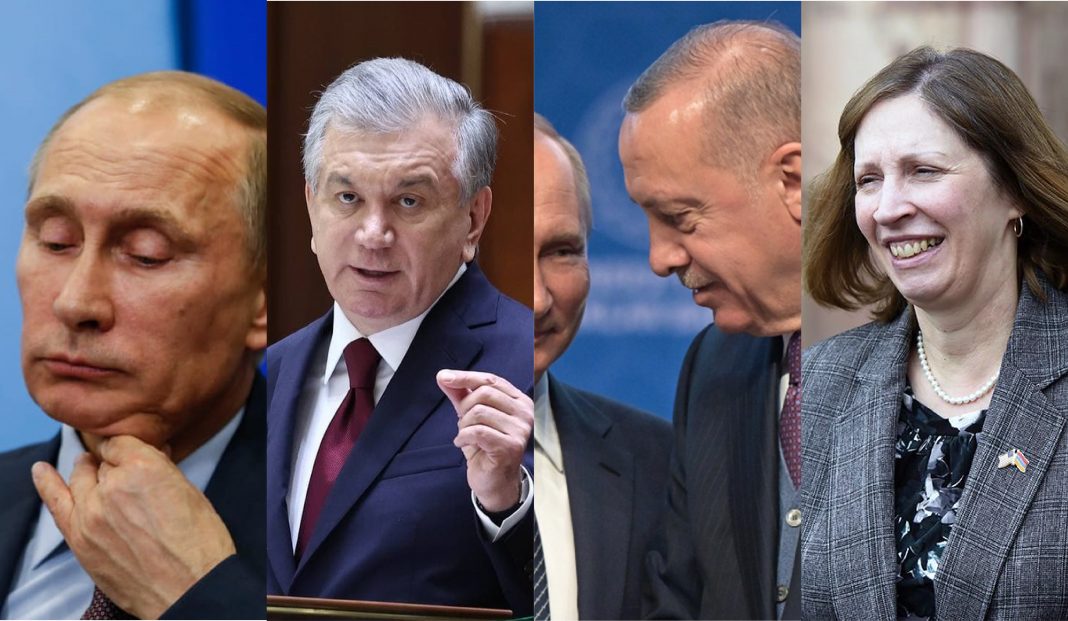This report describes the key events that had an important impact on the political, economic and social processes inside Russia.
Based on the results of the past week, the following key events can be brought to attention:
- Moscow is paying more and more attention to the geopolitical pivot to the East. Apparently, this inquiry will be the trend of 2023. Putin’s foreign policy activities are aimed at the region of Central Asia and the Middle East. Think tanks in Russia are working in the same direction. The concept of “de-westernization” is being actively introduced, which is already noticeable in several analytical reports and publications. Such an approach aims to fix Russia’s strategy in the public mind of its citizens.
- Putin continues to try to play the role of a “peacemaker”, demonstrating efforts to resolve numerous conflicts in Central Asia and the Middle East. The most crucial aspect remains restoring Russian influence in the post-Soviet space (except for Ukraine). Apparently, Putin’s strategy is to implement joint projects that benefit Russia and other states in the region. Hence, the idea of a tripartite alliance with Kazakhstan and Uzbekistan should lead to a decrease in US influence in these countries or an attempt to resolve the conflict between Tajikistan and Kyrgyzstan, as well as between Armenia and Azerbaijan.
- Russia continues to develop its relationship with Turkey, using Erdogan as an intermediary between Moscow and the West. Considering that the presidential election is to be held in Turkey this year and several energy projects, such mediation benefits Erdogan himself. In addition to the Western vector, there is progress in the negotiation process around Syria, where Russia plays an important role.
During January 3rd–8th, the following topics were the most relevant for Russia:
1. Putin’s failed “truce”
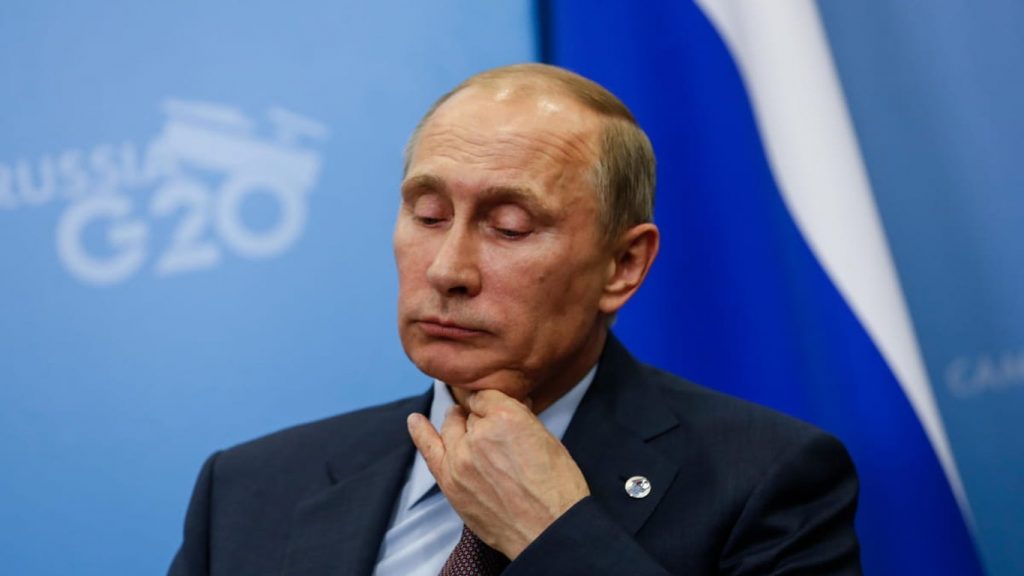
On Wednesday, January 4th, Patriarch Kirill addressed officials in Ukraine and Russia with a request to establish a Christmas truce for 36 hours. The very next day, this proposal was supported by Vladimir Putin, and later an official order from the Ministry of Defense of the Russian Federation appeared. This idea was sharply criticised in Ukraine and the West, although some politicians still welcomed such a move. A few hours after the start of the 36-hour ceasefire, the first reports of its violation by the Russian side were received. The Ukrainian side refused to comply with such a proposal from the beginning.
Timeline:
- On January 4th, Patriarch Kirill proposed a Christmas truce: “I, Kirill, Patriarch of Moscow and All Rus’, appeal to all parties involved in the internecine conflict with an appeal to cease fire and establish a Christmas truce from noon on January 6th to 24:00: 00 January 7th, so that Orthodox people can attend services on Christmas Eve and the day of the Nativity of Christ,” the message says.
- On January 5th, the idea of Patriarch Kirill was supported by Vladimir Putin: “Given the appeal of His Holiness Patriarch Kirill, I instruct the Minister of Defense of the Russian Federation to introduce a ceasefire regime along the entire line of contact in Ukraine from noon on January 6th to 24:00 on January 7th.” Putin also called on the Ukrainian side to support this initiative.
- A few hours later, the Ministry of Defense of the Russian Federation issued an order for a ceasefire for Christmas: “Following the instructions of the President, orders were given to the troops to introduce a ceasefire regime along the entire line of contact between the parties for 36 hours from noon on January 6th to 24:00 on January 7th in Ukraine,” the decree says.
- Volodymyr Zelensky criticised the initiative of the Russian side, saying that this was another manipulation and cover: “Now they want to use Christmas as a cover to stop the advance of our guys in Donbas at least for a while and bring equipment, ammunition and conscripts closer to our positions. What will it give? Just another increase in the account of losses. Everyone in the world knows how the Kremlin uses respite in the war to continue the war with renewed vigour.”
- US President Joe Biden was sceptical of Putin’s ceasefire announcement and called it “an attempt to find oxygen”: “I’m reluctant to respond to anything Putin says. I found this interesting. He was ready to bomb hospitals, kindergartens and churches on the 25th and New Year’s Day. I mean, I think he’s trying to find oxygen.”
- German Foreign Minister Annalena Burbock said the so-called ceasefire would bring neither freedom nor security to the people who live in daily fear under Russian occupation: “If Putin wanted peace, he would bring his soldiers home, and the war would end.” But obviously, he wants to continue the war after a short break.”
- UN Secretary-General António Guterres would welcome any ceasefire in Ukraine during Orthodox Christmas.
- Already after the beginning of the so-called “truce”, the shelling of Bakhmut (Donetsk region) and Kherson by Russian troops was recorded. In turn, the “authorities” of the self-proclaimed DPR announced the shelling of Donetsk and Horlivka by Ukrainian soldiers.
- US Deputy Assistant Secretary of Defense for Russia, Ukraine, and Eurasian Affairs Laura Cooper said fighting continued in Ukraine despite a temporary ceasefire: “Regarding [President Vladimir Putin’s] ceasefire announcement, I can say that there is fighting in Ukraine today, although technically we are in the ceasefire window.”
- Vladimir Zelensky commented on the results of the so-called “truce”: “The Russian “truce” was another attempt to manipulate diplomacy by the Kremlin. But after all the shelling that the invaders carried out on Christmas Day, such decisions by the aggressor country will never work.”
- At the same time, Turkey did not notice any ceasefire violations. Turkish presidential spokesman Ibrahim Kalin said that Ankara hopes for the continuation of the “ceasefire” declared by Putin. “The truce must be extended further, not just for 36 hours.” Kalin also revealed that Turkey made a mutual call for a ceasefire during conversations between Turkish President Tayyip Erdogan, Putin and Ukrainian President Volodymyr Zelensky.
Outcomes and outlook:
Undoubtedly, the “truce” announced by Putin did not carry any constructive position. Moreover, it was initially rejected by the Ukrainian side, and as you know, any truce cannot be unilateral. At the same time, we can register two main factors that underlay such an initiative by the Kremlin. Firstly, the idea of a Christmas “truce” apparently belongs to Turkey (on the eve of the voiced initiative of the Russian side, Erdogan had telephone conversations with Putin and Zelensky). Obviously, in this way, the ground is being formed for the development of further negotiation process. Also, the representative of the President of Turkey, Ibrahim Kalin, spoke positively about the implementation of the initiative. Despite the absence of the truce itself, he proposed to develop this practice further (again, he noted that it was Turkey that called for a mutual ceasefire during Erdogan’s telephone conversations with Putin and Zelensky).
Secondly, many analysts saw Putin’s calls as an attempt to create a specific image in the information space. In fact, Putin has long been trying to promote the impression of a peacemaker, behind which he hides the fact that Russian troops are in the occupied territories of Ukraine. Regular statements about the willingness for negotiations (but only on Russian terms), and now also an attempt to promote the idea of a temporary truce, are elements of one game that is absolutely critically perceived in the West, but at the same time, finds more and more support among Russia’s conditional partners. In this situation, it is important to recall the statement of Xi Jinping, who, during a video call with Putin (December 30, 2022), noted Russia’s desire for a negotiation process. Also, the Turkish side’s statement in support of the “truce” is very resonant (although neither Erdogan nor the Foreign Minister did not make it).
In fact, with this initiative, Putin has once again played for a particular audience, which is more important to him than Europe, Great Britain or the United States. And the result was partially achieved. However, despite the absence of a tangible impact, a precedent was established in the media field. According to it, Russia acted as a peacekeeper, and Ukraine did not support this initiative. Of course, such a precedent will not be taken seriously in the West. Still, in the conditional anti-Western group, which is increasingly beginning to show its contours (Russia, Central Asia, China, Iran, Turkey, India, and the Middle East), such a move will be noticed, which is a very negative signal for Ukraine.
2. Telephone conversation between Recep Tayyip Erdogan and Vladimir Putin
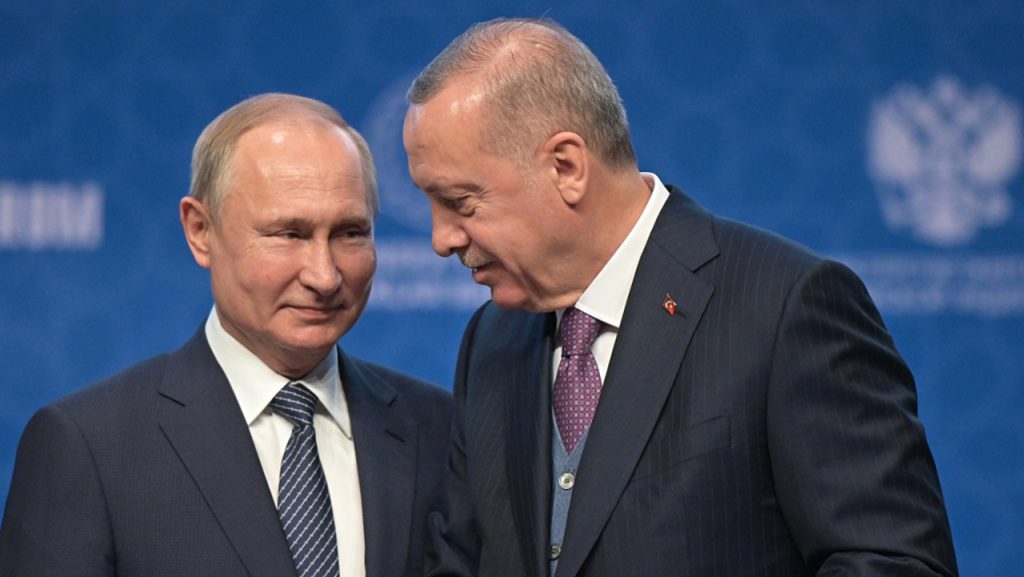
On Thursday, January 5, Vladimir Putin had a telephone conversation with the President of the Republic of Turkey, Recep Tayyip Erdoğan. According to the Russian statements, issues of further expansion of trade and economic ties, mainly in the energy sector, were discussed during the conversation. Furthermore, the parties noted the importance of implementing such strategically significant joint projects as creating a regional gas hub in Turkey and constructing the Akkuyu nuclear power plant. Also, the Ukrainian question was raised; the role of Turkish mediation in a possible political solution to the situation was reported. The parties also discussed prolonging the “grain deal” and fulfilling obligations to the Russian side. In addition, they discussed the situation in Syria and the recent meeting of the heads of the defence and intelligence departments of Russia, Turkey and Syria that took place in Moscow at the end of December (Ascolta reported about this earlier).
According to official information from the Turks, during the conversation, Erdogan and Putin discussed energy matters, Turkish-Russian relations, and regional issues (including the Russian-Ukrainian war and Syria). Erdogan said that Turkey has strengthened and “continues to strengthen the infrastructure to create a natural gas hub in Turkey” and expressed his desire to complete the roadmap and take concrete steps to implement it as soon as possible. Erdogan also recalled the successes in creating a “grain corridor”, the exchange of prisoners and initiatives to create a safe zone around the Zaporizhzhia NPP, and said that “a unilateral ceasefire and a vision of a just solution should support calls for peace and negotiations.” Also, the Turkish President insisted on the need to “take concrete steps to clean up the PKK/PYD/YPG organisation in the border regions of Turkey, especially in Tel Rifat and Manbij.”
Outcomes and outlook:
Interestingly, the conversation took place against the backdrop of two trends: on the one hand, at the end of December, the United States threatened Turkey with exclusion from NATO. On the other hand, the Turkish media published data according to which almost 60% of Turks consider Russia a friendly state, but 90% called the United States an unambiguously hostile country. Negotiations between the heads of the special services of Russia, Turkey and Syria preceded the negotiations. Immediately after that, Erdogan made a statement about the possibility of postponing the presidential elections in Turkey to May (a month ahead of schedule). Obviously, Putin promised his strategic ally several “gifts” (perhaps in the form of an increase in gas supplies at a fixed price, some concessions on the Ukrainian issue, since this topic is crucial for Erdogan: he understands that his success as an intermediary is the voice of the Crimean Tatars, the second largest national minority in Turkey).
In addition, Turkey is Russia’s leading partner on several issues. For example, within NATO, Turkey can block undesirable issues for Russia (this was shown by the Turkish position regarding Sweden and Finland joining the North Atlantic Alliance). For Russia, Turkey’s position on the eve of the next meeting of the “anti-Putin coalition” in Ramstein is essential. Thus, a telephone conversation between Putin and Erdogan is vital for both sides.
It is also interesting that a few days after the telephone conversation between Putin and Erdogan, the Deputy Chairman of the Security Council of the Russian Federation, Dmitry Medvedev arrived in Turkey with an unannounced visit. Recently, Medvedev has again regained the status of Putin’s understudy and is participating in significant interstate negotiations.
At the same time, it is worth noting that much attention was paid to Syria in addition to the Ukrainian issue. For Turkey, resolving the situation in northern Syria is no less meaningful than mediating a peaceful settlement of Russia’s military aggression against Ukraine, especially on the eve of the elections. In this matter, both Ankara and Moscow are tasked with resolving another regional conflict, which helps build a new and more robust system of international relations at the regional level.
3. Telephone conversation between Vladimir Putin and Shavkat Mirziyoyev
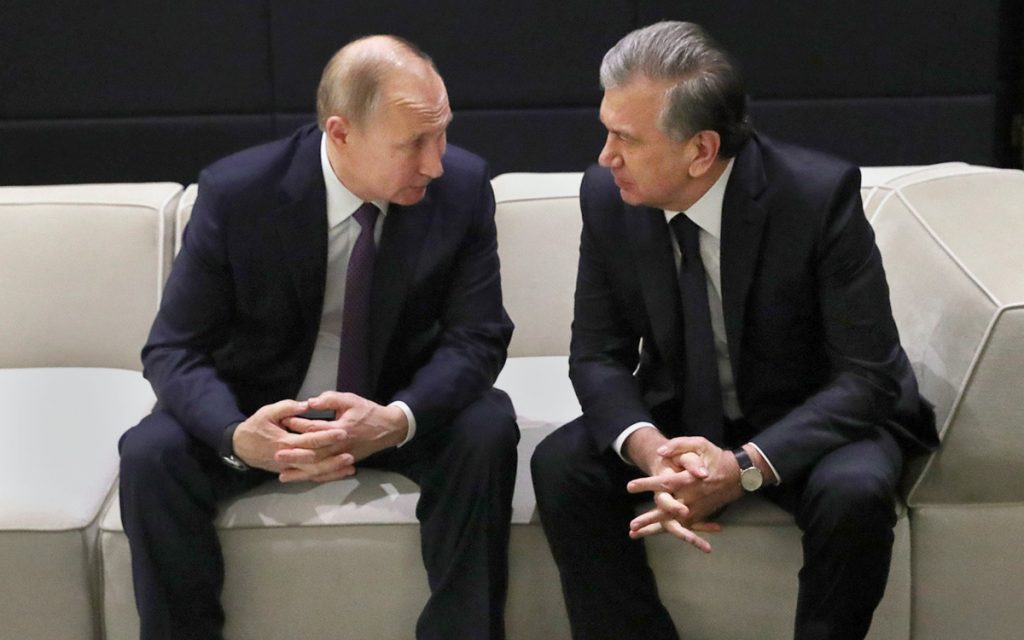
On Wednesday, January 4, a telephone conversation occurred between Vladimir Putin and President of Uzbekistan Shavkat Mirziyoyev. According to official information from the Russian side, during the conversation, the parties discussed their desire to strengthen Russian-Uzbek relations of alliance and strategic partnership, increase trade, and expand mutually beneficial cooperation in various fields, including energy. It is also noted that Mirziyoyev expressed gratitude for the hospitality shown during the informal meeting of the heads of the CIS members in St. Petersburg on December 26–27, 2022 (Ascolta reported about this earlier).
According to official information from the Uzbek side, during the exchange, the issues of further deepening the Uzbek-Russian relations of a comprehensive strategic partnership were discussed. The dynamics of the development of bilateral commerce and economic cooperation, including the growth of mutual trade, and an increase in the number of joint ventures and cooperation projects with the participation of leading companies of Uzbekistan and Russia, was noted with satisfaction. Furthermore, the importance of continuing intensive contacts between the regions of the two countries, effectively using for this purpose the opportunities of the sites of the international exhibition “Innoprom. Central Asia”, as well as the Uzbek-Russian Forum of Regions. Specific attention was paid to expanding mutually beneficial cooperation in the oil and gas sector.
Outcomes and outlook:
In fact, the official results of the meeting on both sides were declared in a very streamlined way, without any specifics. At the same time, it is essential to note that Uzbekistan is one of the important directions in Central Asia for Russia, deserving special attention in the light of building new geopolitical and regional ties.
In fact, Uzbekistan demonstrates the highest development rates among all states in the post-Soviet space. The policy of Shavkat Mirziyoyev is built mainly on a stable balancing act between China, Russia and the United States, which are increasingly strengthening their presence in the region, creating a real threat to Russia (and partly to China).
In mid-October 2022, the Russia-Central Asia summit took place, during which Vladimir Putin once again declared Russia’s priority in developing and strengthening relations with the states of this region. Moreover, the idea of creating a joint gas transportation project between Russia, Kazakhstan and Uzbekistan was voiced, which would significantly expand the gas infrastructure in the region and increase gas exports to China, which has a significant benefit for all participants in this project. At the same time, Mirziyoyev turned out to be the only member of the tripartite alliance who was in no hurry to respond to Putin’s suggestion. Moreover, immediately after the October summit, active discussions began that Uzbekistan intended to abandon this project under pressure from the United States.
On December 9, 2022, the EAEU summit was held in Bishkek (Kyrgyzstan), during which Putin again raised the point of creating a tripartite alliance of Russia, Kazakhstan and Uzbekistan on a joint gas transportation project. It is worth noting that even though Uzbekistan was represented at this summit not by the president, but by Prime Minister Abdulla Aripov (many analysts considered this the final refusal of Uzbekistan to participate in Putin’s initiative), according to Ascolta, the parties still managed to achieve some progress in the implementation of this project.
The telephone conversation between Putin and Mirziyoyev was also devoted to this issue. As a result, Tashkent likely received several additional proposals that could benefit to the country’s economy.
Thus, it can be stated that Russia’s turn towards Central Asia and the Middle East is being implemented not only in words. In conditions of total isolation in the West, Putin is trying to build new regional alliances and implement several projects that benefit Russia and other regional states.
4. New US Ambassador to Russia
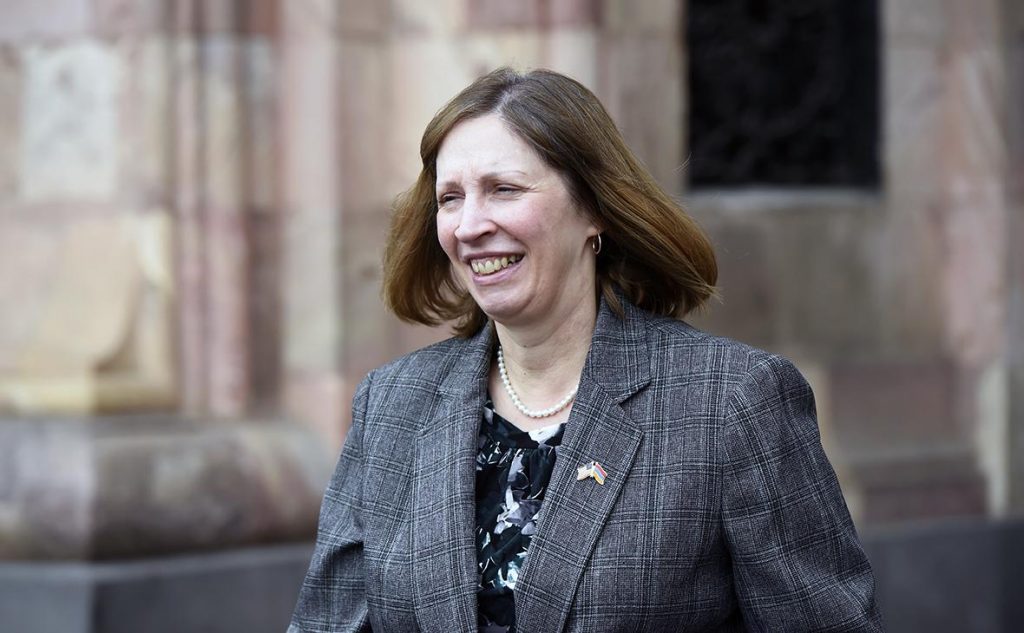
On Tuesday, January 3rd, US State Department spokesman Ned Price said that the new US ambassador to Russia, Lynn Tracy, will start her duties in Moscow in the coming days. According to public information, Lynn Tracy arrived in Moscow on January 5th, and from Monday, she should officially take her office at the embassy.
It is worth noting that US senators approved the appointment of Lynn Tracy as the new US Ambassador to Russia on December 21st, 2022. For her candidacy, chosen by President Joe Biden, 93 members of the upper house of Congress voted, while two (namely republicans Mike Lee and Rand Paul) opposed.
The previous US ambassador to Russia, John Sullivan, stepped down in September 2022 due to his wife’s illness. Although she had been suffering from cancer for a long time, her condition worsened sharply in early autumn. She died on September 5th. Sullivan emphasized that his departure had nothing to do with the Russian war in Ukraine or with the policies of the Biden administration.
Outcomes and outlook:
During a press briefing announcing the hiring of a new ambassador, US State Department spokesman Ned Price said that one of the goals of the new US ambassador to Russia, Lynn Tracy, is to resume issuing US visas to Russians and increase the number of embassy staff: “She will focus her focus on embassy leadership, maintaining bilateral relations during a period of extremely high tension, and working with the Russian authorities to improve the staffing of the US embassy.”
The US Embassy in Russia has not issued visas to Russians since the spring of 2021, except for diplomatic and immigration visas. At the same time, Russian citizens can still obtain a visa at the US Embassy in other countries.v
At the same time, we should note that Lynn Tracy has much experience in Russia and the Central Asian region. Seemingly, this factor played an essential role in her appointment to a rather significant position at the State Department.
Lynn Tracy joined the US State Department in 1994. She was immediately appointed Secretary of Political Affairs at the US Embassy in Turkmenistan. From 1995-1997, she held the same post at the US Consulate General in Peshawar, Pakistan. During 1997-2000, she was an employee of the Consular Section of the US Embassy in the Kyrgyz Republic.
In 2000, she returned to the United States and took up the post of Assistant Special Envoy for the Newly Independent States at the US State Department. During 2001-2002 she worked as a coordinator for Georgia, and in 2003-2004 served for Kazakhstan at the Bureau for European and Eurasian Affairs (EUR).
At the same time, during 2002-2003, she worked in the political department of the US Embassy in Afghanistan. Later, in 2004-2006 she worked at the US Embassy in Kazakhstan. From 2006 to 2009, she was the US Consul General in Peshawar, Pakistan. During 2010-2011, she was Deputy US Ambassador to Turkmenistan.
In 2011, she returned to the United States and took up the post of Director for Central Asia at the US National Security Council. After that, she served as Deputy Assistant Secretary of State for South and Central Asian Affairs during 2012-2014 and took the post of Deputy US Ambassador to Russia in 2014-2017. Then she worked as a senior adviser for Russian affairs at the EUR.
In 2019, she was appointed US Ambassador to Armenia, where she worked until her appointment to Moscow.
Lynn Tracy’s track record demonstrates her vast experience in the region. She has the broadest connections and is well-versed not only in Russian politics but also in the domestic politics of several Central Asian states. That is, where Russia directs its primary efforts to develop and strengthen relations.
While Russia is reducing diplomatic missions in the West and, at the same time, transferring residents of intelligence structures to more essential areas (Central Asia, the Middle East, Africa and Latin America), the United States is making a different move. The US is trying to succeed in these trends and appointing a person, precisely oriented in all processes in the given region, to the main diplomatic post in Moscow. Such a game again demonstrates the seriousness of geopolitical transformations that pose a primary threat to Europe.

